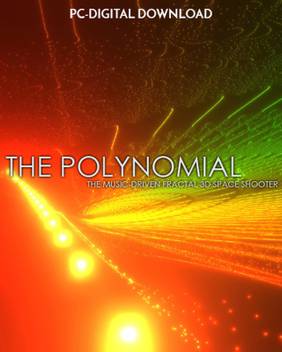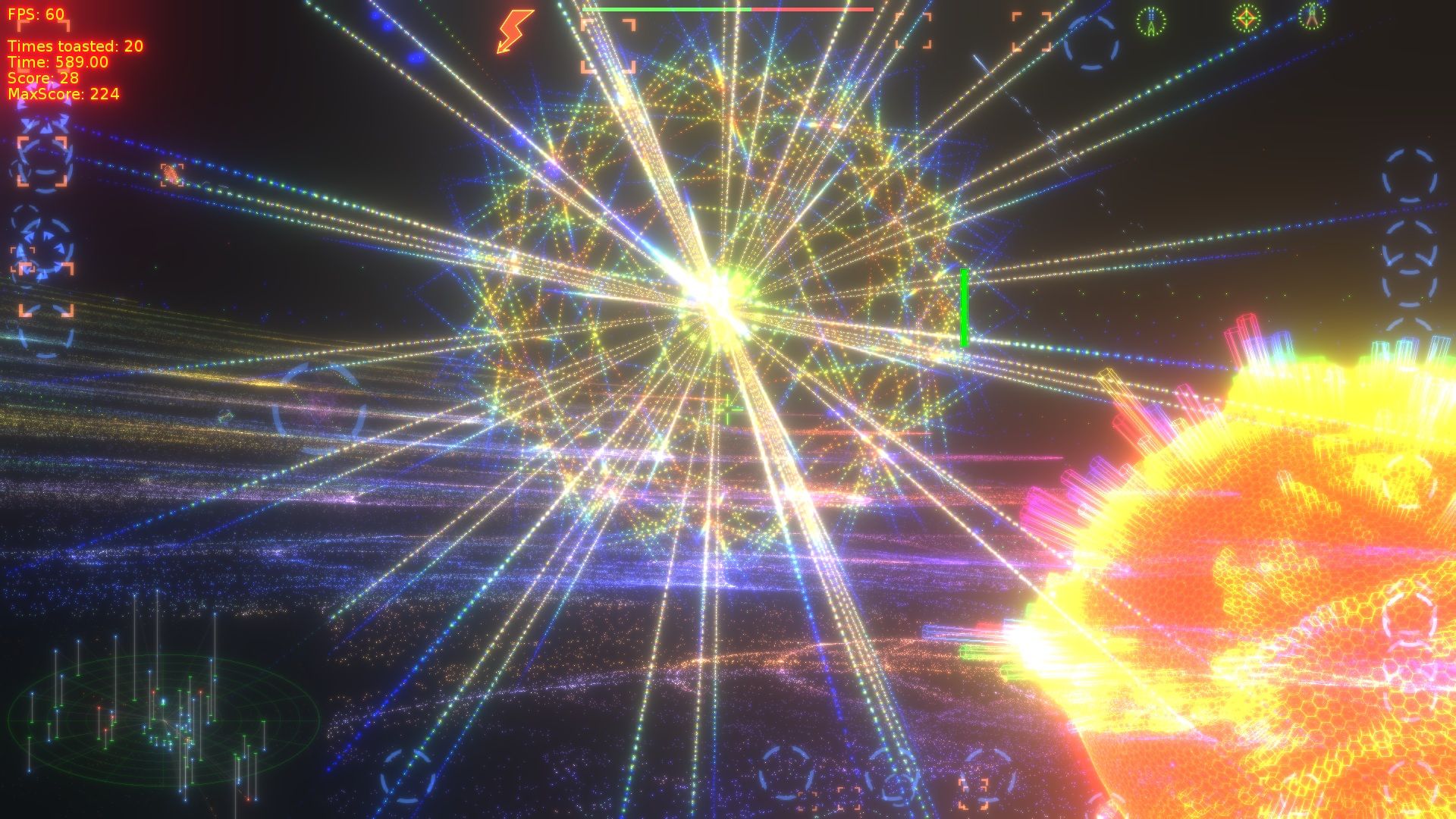- The Polynomial Game
- The Polynomial Space Of The Music Free Download
- The Polynomial - Space Of The Music Download Free
- The Degree Of The Polynomial
Three roots of the polynomial equation x4 - 4x3 - 2x2 + 12x + 9 = 0 are 3, -1 and -1. Explain why the fourth number is real root. I really need help solving this so please reply as soon as possible thank you. This website offers teachers and students authentic mathematics problems based upon NASA press releases, mission science results, and other sources. All problems are based on STEM, common core standards and real-world applications for grades 3 to 12 and beyond. The game was renamed to The Polynomial: Space of the Music and released for PC and MAC through Steam on Oct. Notably, the developer has also personally optimized the game for use in WINE on Linux, and it functions perfectly on the platform. As of the end of December 2012 Polynomial released on Steam for Linux as a native client.
| Unsolved problem in computer science: (more unsolved problems in computer science) |
In computational complexity theory, PSPACE is the set of all decision problems that can be solved by a Turing machine using a polynomialamount of space.
Formal definition[edit]
If we denote by SPACE(t(n)), the set of all problems that can be solved by Turing machines using O(t(n)) space for some function t of the input size n, then we can define PSPACE formally as[1]
PSPACE is a strict superset of the set of context-sensitive languages.
It turns out that allowing the Turing machine to be nondeterministic does not add any extra power. Because of Savitch's theorem,[2] NPSPACE is equivalent to PSPACE, essentially because a deterministic Turing machine can simulate a non-deterministic Turing machine without needing much more space (even though it may use much more time).[3] Also, the complements of all problems in PSPACE are also in PSPACE, meaning that co-PSPACE = PSPACE.
The Polynomial Game
The Polynomial - Space of the music - Steam is a program developed by Dmytry Lavrov. Access and see more information, as well as download and install The Polynomial - Space of the music - Steam. The best place to get cheats, codes, cheat codes, walkthrough, guide, FAQ, unlockables, tricks, and secrets for The Polynomial: Space Of The Music for PC.

Relation among other classes[edit]
The following relations are known between PSPACE and the complexity classes NL, P, NP, PH, EXPTIME and EXPSPACE (note that ⊊, meaning strict containment, is not the same as ⊈):

It is known that in the first and second line, at least one of the set containments must be strict, but it is not known which. It is widely suspected that all are strict.
The containments in the third line are both known to be strict. The first follows from direct diagonalization (the space hierarchy theorem, NL ⊊ NPSPACE) and the fact that PSPACE = NPSPACE via Savitch's theorem. The second follows simply from the space hierarchy theorem.
The hardest problems in PSPACE are the PSPACE-complete problems. See PSPACE-complete for examples of problems that are suspected to be in PSPACE but not in NP.
Closure properties[edit]
The class PSPACE is closed under operations union, complementation, and Kleene star.
Other characterizations[edit]
An alternative characterization of PSPACE is the set of problems decidable by an alternating Turing machine in polynomial time, sometimes called APTIME or just AP.[4]

A logical characterization of PSPACE from descriptive complexity theory is that it is the set of problems expressible in second-order logic with the addition of a transitive closure operator. A full transitive closure is not needed; a commutative transitive closure and even weaker forms suffice. It is the addition of this operator that (possibly) distinguishes PSPACE from PH.
A major result of complexity theory is that PSPACE can be characterized as all the languages recognizable by a particular interactive proof system, the one defining the class IP. In this system, there is an all-powerful prover trying to convince a randomized polynomial-time verifier that a string is in the language. It should be able to convince the verifier with high probability if the string is in the language, but should not be able to convince it except with low probability if the string is not in the language.
PSPACE can be characterized as the quantum complexity class QIP.[5]
PSPACE is also equal to PCTC, problems solvable by classical computers using closed timelike curves,[6] as well as to BQPCTC, problems solvable by quantum computers using closed timelike curves.[7]
PSPACE-completeness[edit]
A language B is PSPACE-complete if it is in PSPACE and it is PSPACE-hard, which means for all A ∈ PSPACE, , where means that there is a polynomial-time many-one reduction from A to B. PSPACE-complete problems are of great importance to studying PSPACE problems because they represent the most difficult problems in PSPACE. Finding a simple solution to a PSPACE-complete problem would mean we have a simple solution to all other problems in PSPACE because all PSPACE problems could be reduced to a PSPACE-complete problem.[8]
An example of a PSPACE-complete problem is the quantified Boolean formula problem (usually abbreviated to QBF or TQBF; the T stands for 'true').[8]
References[edit]
The Polynomial Space Of The Music Free Download
- ^Arora & Barak (2009) p.81
- ^Arora & Barak (2009) p.85
- ^Arora & Barak (2009) p.86
- ^Arora & Barak (2009) p.100
- ^Rahul Jain; Zhengfeng Ji; Sarvagya Upadhyay; John Watrous (July 2009). 'QIP = PSPACE'. arXiv:0907.4737.
- ^S. Aaronson (March 2005). 'NP-complete problems and physical reality'. SIGACT News. arXiv:quant-ph/0502072. Bibcode:2005quant.ph..2072A..
- ^Watrous, John; Aaronson, Scott (2009). 'Closed timelike curves make quantum and classical computing equivalent'. Proceedings of the Royal Society A: Mathematical, Physical and Engineering Sciences. 465 (2102): 631. arXiv:0808.2669. Bibcode:2009RSPSA.465..631A. doi:10.1098/rspa.2008.0350.
- ^ abArora & Barak (2009) p.83
The Polynomial - Space Of The Music Download Free
- Arora, Sanjeev; Barak, Boaz (2009). Computational complexity. A modern approach. Cambridge University Press. ISBN978-0-521-42426-4. Zbl1193.68112.
- Sipser, Michael (1997). Introduction to the Theory of Computation. PWS Publishing. ISBN0-534-94728-X. Section 8.2–8.3 (The Class PSPACE, PSPACE-completeness), pp. 281–294.
- Papadimitriou, Christos (1993). Computational Complexity (1st ed.). Addison Wesley. ISBN0-201-53082-1. Chapter 19: Polynomial space, pp. 455–490.
- Sipser, Michael (2006). Introduction to the Theory of Computation (2nd ed.). Thomson Course Technology. ISBN0-534-95097-3. Chapter 8: Space Complexity
- Complexity Zoo: PSPACE